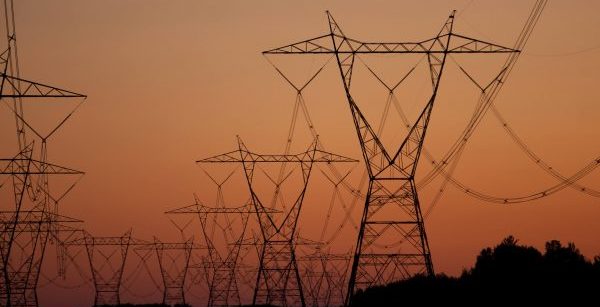By Dennis Porter, American Military University
The Red Cross advises that people store 72 hours’ worth of food and water for earthquakes and other disasters, and prepared families are increasingly heeding that advice. But now we must go further and consider the consequences of a full-scale power grid down, which could last weeks or maybe even months.
It’s not just civilians who should be prepared for such a scenario. Public safety agencies need to develop operational plans for an extended loss of electricity. Is your agency ready for such an event?
[Related: Preparing for Widespread Power Outages: What Local First Responders Need to Know]
What could bring the power grid down? There are at least three things could cause a failure of the U.S. electricity system. The first, and most likely scenario, is terrorism. There have been several reports of cyberattacks on critical infrastructure around the world. According to an article in Scientific American, in August, there was a cyberattack on the Irish power grid; in July there was a digital assault on U.S. energy companies, including a nuclear power plant; in December 2016, there was a Russian hack of a Vermont utility company. Experts around the world are warning that similar, more severe, cyberattacks are highly probable.
[Related: Cybersecurity Threats: Protecting the Nation’s Infrastructure against an EMP Attack]
There are two other potential threats to the power grid, and while they are less likely, they are still worth considering:
- Electro Magnetic Pulse (EMP) – A nuclear bomb could be exploded in the upper atmosphere to cause an EMP. This would bring down the power grid, disrupt communications, and even make vehicles inoperable. Threats of an EMP attack have recently come from North Korea.
- “Space Weather” – A geomagnetic storm triggered by a powerful solar flare or Coronal Mass Ejection (CME) would bring the power grid down. The biggest recorded solar storm to hit our planet was the Carrington Event in 1859.
Can you imagine what kind of things won’t work in a power grid down scenario? All you have to do is think about what won’t work without electricity, such as phones, radio communications, computers, cars, ATMs, credit card point-of-sale scanners, gas pumps, and many more things. As such, the challenges for law enforcement range from logistical to personnel-related.
Here are just a handful of questions agencies should be asking in preparation for a possible collapse of the power grid:
- How can we retain officers who are on-duty, but want to go home to make sure their families are safe and secure?
- How will watch commanders deploy on-duty personnel without communications or operational vehicles in a worst-case scenario?
- How can professional staff get home safely in a prolonged power outage?
- Will officers scheduled to relieve the on-duty shift be kept from reporting due to the loss of power? Perhaps they won’t want to leave their families fearing for their security.
- What resources are on hand or easily accessible that don’t require electricity?
- How will information be communicated with the general public?
The above will be challenges for watch commanders, but the challenges don’t stop there. For example, custody captains must consider that with no electricity, no water will be pumped into jails and no sewage pumped out. How long will jails be tenable for the people incarcerated there?
The point is to make sure you have made reasonable, common-sense preparations:
- Officers should keep emergency water and rations in their personal vehicle or locker in case they are stranded at the station.
- Officers need to prepare their family with a plan if he or she is delayed in coming home. This would involve planning ahead about who is to pick up children from school and other similar logistics.
- Police stations need to have food and water stockpiled to sustain stranded station personnel, sworn officers, and professional staff.
- Emergency generators at the station need to be assessed to determine if they would be able to survive an EMP or CME.
- Some radios need to be set aside for emergency use and protected from an EMP or CME.
- Station commanders need to consider identifying a cadre of officers who are willing to extend their assigned shift and remain at their station possibly for the duration of the power outage.
- Grid down tabletop exercises should be conducted to determine deployment strategies.
- Mutual aid cooperation plans need to be made with utility companies, fire stations and other law enforcement agencies.
The above suggestions have only scratched the surface of what needs to be considered for an extended power grid down scenario. These supplies and plans need to be made now because if the power grid goes down, it will be too late to start preparing.
The following books offer more food for thought on a potential grid down, from both non-fiction and fiction perspectives:
- Lights Out by Ted Koppel. While there’s no mention as to what the response should or would be from police and fire, this non-fiction investigation from a renowned journalist provides good general information about what to expect during a power grid down.
- EMP Los Angeles by Frank La Flamme. This novel is about public safety personnel dealing with the aftermath of an EMP in and around the city of Los Angeles.
- One Second After by William R. Forstchen. This novel tells the story of how a small-town survives in the wake of an EMP.
About the Author: Dennis Porter is a retired Los Angeles Sheriff’s Department Sergeant with more than 30 years of law enforcement experience. He is also a Community Emergency Response Team (CERT) member. Dennis holds a master’s degree in Homeland Security with an emphasis in Emergency Disaster Management from American Military University.


Comments are closed.